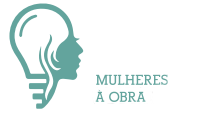27 Abril, 2024
Destaques
-
Monte das Lages – o paraíso à nossa porta...
-
Prémio Nobel da Economia reconhece importância da igualdade de género...
-
Agir pelo Empoderamento Feminino...
-
Dress4Success Lisboa...
-
Formação gratuita para Empreendedoras...
-
Mulheres à Obra na EPALE...
-
Supera_te: mulheres unidas contra a violência doméstica...
-
Primeira Publicação Científica sobre as Mulheres à Obra já disponível...

